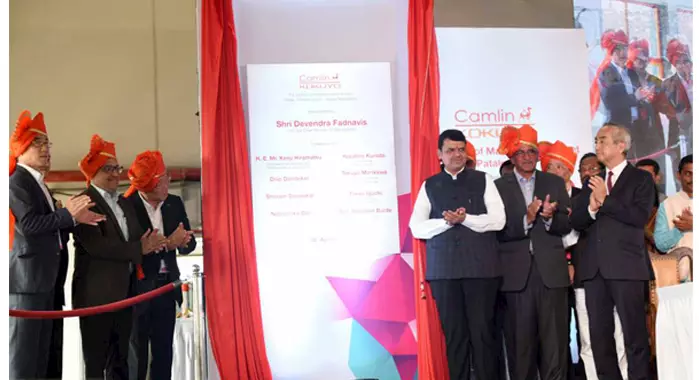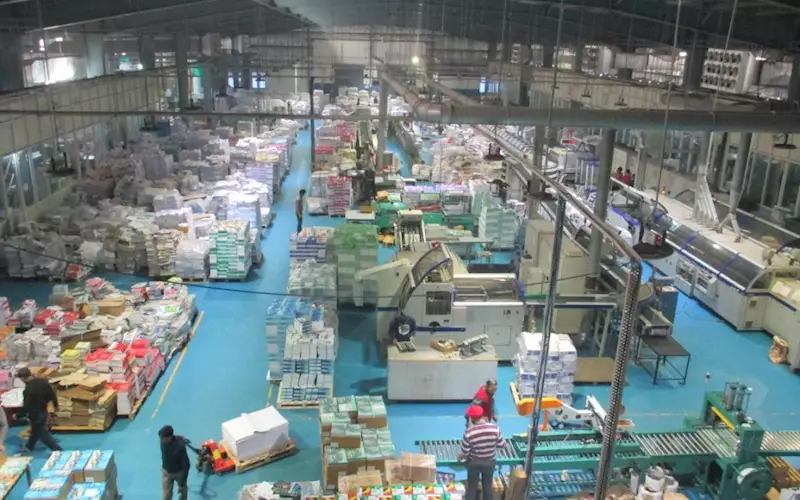How K12 and stationery exports making it big
Repro India’s boost to their print on demand (POD) division and robust performances by other stationery majors seem to be in the news in what has otherwise been a quiet first quarter. Children’s education and books for K12 and stationery exports all seem to have performed well.
12 May 2017 | By Rahul Kumar

Gupta: “The K12 area is where the company is more focussed today"
While speaking to a leading business channel, Himanshu Gupta, MD, S Chand & Company, that K12 is the area the company is focusing on, with around 75% or close to 75% of its revenue coming from K12. “We believe K12 is going to grow further,” he says.
In India, there are around 1.5 million schools with 270 million students. In addition, 3,50,000 schools are privately owned and this segment is growing organically, The growth of the private school market is more than 10% every year.
Gupta adds, “S Chand has been enjoying EBITDA margin, including the new acquisition of Chhaya Prakashani that we did last year. If we include that on a consolidated basis, we are growing at an EBITDA margin of around 26.4% for FY16. That gives around Rs 176 crore of EBITDA margin of FY16.”
Last year in October, another major Navneet Education acquired Britannica’s Indian curriculum business for Rs 88 crore. Britannica India’s Curriculum Division designs and develops educational products, used by nearly five million students, across India and Indian schools abroad. Under the agreement, the current Britannica business unit will become an independent company within Navneet and will realise considerable synergies with Navneet’s larger Indian group. The company will market Britannica’s existing India-specific curriculum titles, such as Know for Sure and The English Channel, as well as develop new titles under Britannica’s brand, editorial supervision and guidelines for seven years.
Chicago-headquartered Britannica will continue to offer its award-winning digital education solutions.
Gnanesh Gala, MD, Navneet Education, assesses the situation: “The Q3 was excellent in terms of topline and bottomline. Navneet Education expects an overall growth of 17-18% for FY17 as well as for FY18. The company is not planning to demerge its stationery business.”
Even today, Navneet has a market share in excess of 60% in two major state boards (Maharashtra and Gujarat). It has a planned expansion into newer states and CBSE curriculum books.
Navneet’s investments in K12 technologies through its subsidiary Navneet Learning LLP has been yielding positive results. A year ago, the company had 12 CBSE schools under management with a brand like Orchid Internationals, with student enrolment of more than 10,000.
Meanwhile, Vinod Vohra, chairman of book printing major Repro India, during his AGM address to shareholders provides an insight into the publishing mindset. He says, “Most of the educational publishers are trying to adapt to the new way of doing business. Customers are moving to digital platforms or demanding printed books in a shorter timeframe and at a lower cost!”
Vohra adds, “The traditional publishing process is an elaborate and unwieldy one, laying the publisher open to many risks. These include rising obsolescence costs, inventory management, high returns of unsold books, an impossibly long collection cycle... the list goes on. Additionally, making books visible to readers poses a challenge, with the publishers’ reach restricted to physical distribution and sales channels.”
This is one of the reasons Repro has become an aggregator of titles from Indian publishers. Vohra says, “These titles are also being sold in India, without maintaining any physical stock of the books. These digital files from Indian publishers are also being given to the Ingram Content Group for global distribution.”
This explains why most of the publishers in India are working on a three-pronged strategy. One, a strategy of consolidation in traditional businesses; two, an increased focus and emphasis on the eTail business; and three mid-term planning of activity and reducing operating expenses wherever possible and managing fund flows in a way that lead to savings in borrowing costs.
Gupta adds, “S Chand’s printing press unit that we had set up around two and a half years back that has started to kick off a better operating leverage.”
Most of the majors are focus on the regional markets in the next three to five years to fulfill the print requirement,” Gupta says, adding, “We believe there is lot of printed books potential in the regional markets and we will try to use that potential and lookout for some good opportunities and grow.”
Thus far, if balance sheets are anything to go by, the three-pronged strategy seems to be succeeding.
New Indian factories by Kokuyo Camlin, BIC Group
Kokuyo Camlin has opened a new plant at Patalganga. With an investment of Rs 100 crore, the company (earlier Camlin), will manufacture 200 product SKUs (stock keeping units). Also, it will maintain a permanent R&D facility for inks, adhesives and plastics injection moulding. Kokuyo Camlin recently inaugurated a new factory in Patalganga, Maharashtra. The company has invested Rs 100 crore, and will manufacture and cater to the domestic and international market from its new facility
Kokuyo Camlin recently inaugurated a new factory in Patalganga, Maharashtra. The company has invested Rs 100 crore, and will manufacture and cater to the domestic and international market from its new facility
Kokuyo Camlin has been manufacturing art materials and stationery products under the flagship brands Camel and Camlin for over 80 years. It also sells fine art materials, scholastic colours and stationery, hobby products, office products, writing and drawing instruments, adhesives and notebooks.
The plant near Nhava Sheva port is spread over 56,000 sq/mts with a 27,268 sq/mts factory and an office complex, making it the largest among Kokuyo group stationery factories in Japan, along with China, Vietnam and Thailand.
In 2016, the 2.2 billion Euro French stationery giant BIC Group planned to set up a factory in Gujarat. The firm, which acquired Cell pens, was expected to make it the manufacturing hub for other Asian markets. The factory, when operational in 2018-19, is expected to export 20% of BIC's produce.











 See All
See All